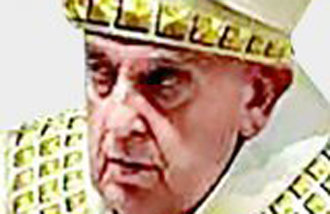Book sheds no light on Ahn`s policies
The Dong-A Ilbo published Saturday an article comparing the perceptions of presidential candidates from both the ruling and opposition parties about the extension of the range of South Koreas ballistic missiles, the military intelligence deal with Japan and the construction of a naval base in Jeju Island, three major issues of diplomacy and national security.
Ahn Cheol-soo, former IT guru and dean of Seoul National Universitys Graduate School of Convergence Science and Technology, is a potential presidential runner who is ranked No. 1 or 2 in opinion polls for the presidency. He declined to be interviewed by Dong-A by saying he has not declared his candidacy for president yet, so it would be inappropriate to give opinions as a presidential hopeful. With just four months until the election, it is a bit strange to see such a major candidate trying to avoid policy verification.
In the U.S., presidential hopefuls of both the ruling and opposition parties begin competing for policies about a year prior to the election. Koreans want to know the policies and thoughts of all candidates who will potentially run their country, which is ranked in the worlds top 10, for the next five years. This is why all runners are expected to compete for policies and why the media should ask questions on behalf of the people about what they want to know.
Ahn`s book The Thoughts of Ahn Cheol-soo, published July 19, is more of a light essay about his political ideas and not much of a serious book introducing his analysis of political problems and his own political solutions. The book is mostly about commentaries such as This is the problem, or, This should not be so. He specified no policy in the book.
On the construction of a naval base on Jeju Island, he wrote, Accepting the idea would be right, yet turned evasive when he said, Going ahead with the construction without persuading and communicating with the residents was not a good decision. The book does not make it clear whether he wants to push ahead with the construction or to cancel the project due to lack of persuasion of the residents. It is impossible to figure out Ahns opinion on the construction solely based on the book.
Each policy has its own cost and benefit. There is no policy that has only benefit without expense or vice versa. That is why selection and decision should be made through an analysis of cost and benefit to carry out a policy. Instead of providing his policy ideas, the dean provides readers with abstract ideas such as, The world must be fair, Social welfare and peace are important, or Communication and consensus are important for policy making process. His political ideas are still vague as if surrounded by fog.
He never mentions in his book the controversy over the pro-North Korea inclinations of certain lawmakers of the minor opposition United Progressive Party, which has become one of the most controversial issues after the April 11 parliamentary elections. Professor Je Jeong-im asked only non-controversial questions to Ahn, who delivered his principles, not specific ideas. The former IT guru says he published the book to hear peoples thoughts on his running for president. Yet the book further confuses readers on the matter. It would be proper for him to give sincere answers to questions that the book fails to provide.
The dean never said, I haven`t declared my own candidacy so please exclude me from polls. Countless polls have been conducted on presidential approval ratings since the second half of last year. By doing so, he has practically let the nation think of him as a presidential candidates.
Considering those who are far behind in the approval ratings have been doing their best to present competing policies as a ray of hope, Ahns avoidance of presenting his own policies does not seem right. If he keeps repeating, I haven`t declared my own candidacy yet so I cannot reveal my policy ideas, this is akin to forcing people to choose him based on his public image while knowing nothing about him at all.
Ahn emphasizes common sense and justice more than anybody else. Not presenting his policy ideas 140 days before the presidential election, however, makes neither political common sense nor democratic justice that is supposed to help the people make the right decisions.
Headline News
- Korean president faces debate limitations unlike U.S. counterpart
- KEPCO's first quarter profits failed to meet market expectations
- Teenagers are left out of discussions about national pension
- 2 consultative bodies submit minutes regarding increasing number of medical students
- Woo Sang-hyuk's rivalry and friendship transcend borders







